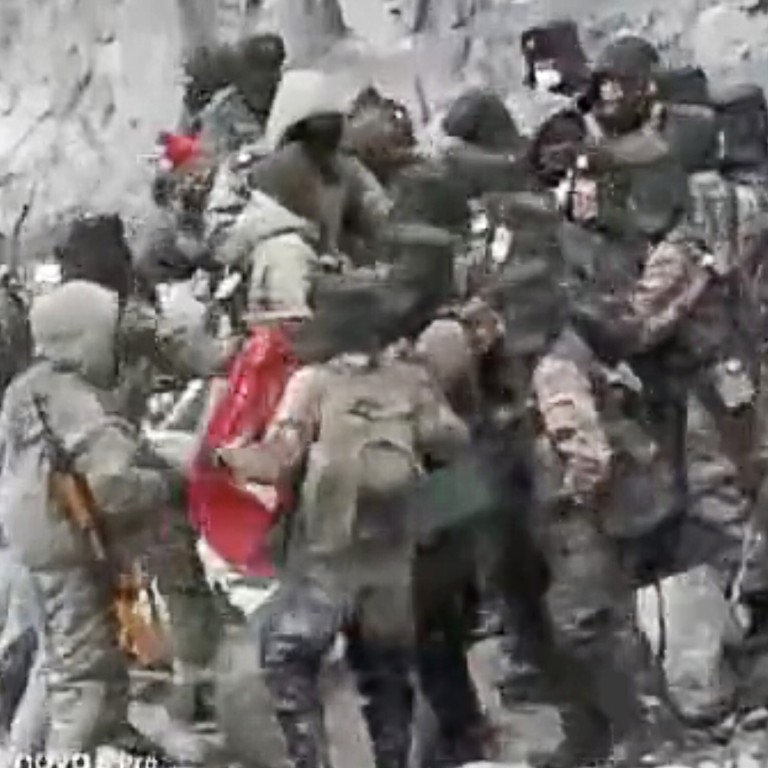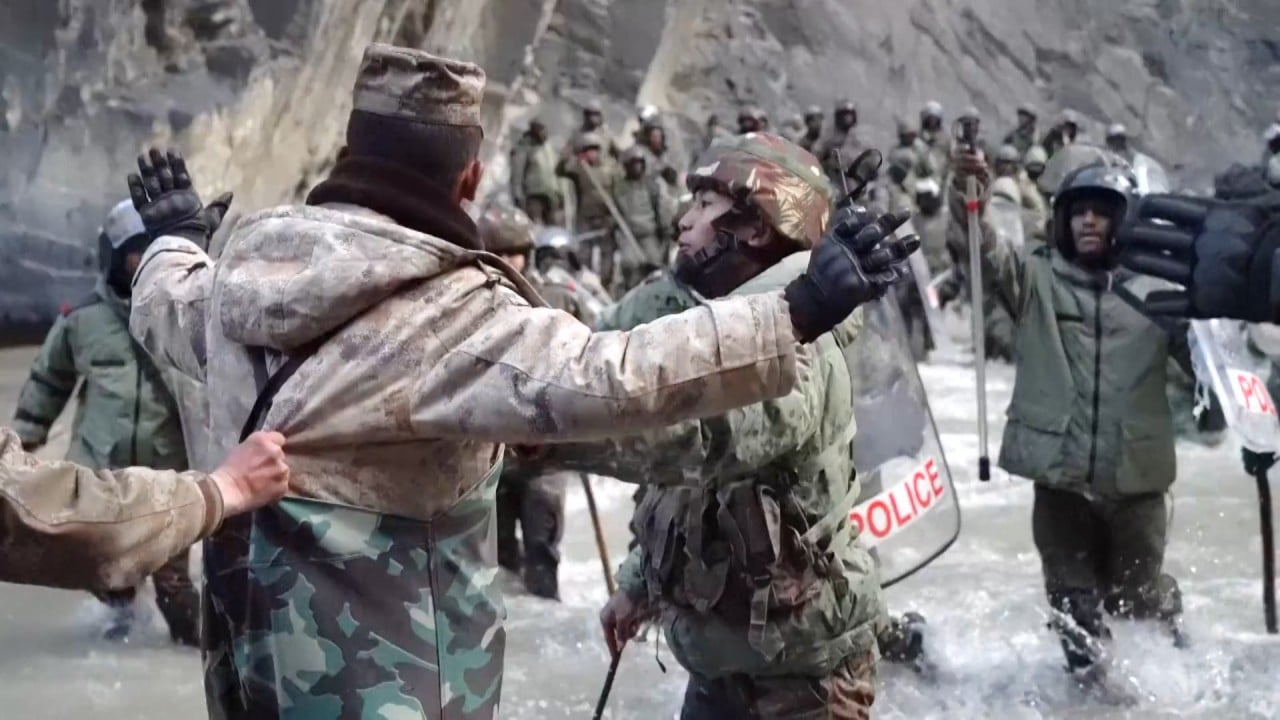
China charges blogger who questioned official death toll in India border clash
- Qiu, who has 2.4 million Weibo followers, is charged after being among those detained under newly updated law against defaming ‘heroes’
- His post said that since the four Chinese soldiers killed had been sent to rescue a colonel, more must have died
The comments came after China said that four of its soldiers had been killed and one seriously wounded during June’s clash in the Himalayas.
Qiu, who has 2.4 million followers on China’s Twitter-like Weibo, was formally charged for online comments that prosecutors in the eastern city of Nanjing said “distorted facts, defamed five soldiers who defended the Chinese border, and have led to severely negative social impacts”.

01:31
China shares video of deadly 2020 border clash with Indian troops in Galwan Valley
The country’s top legislature in 2018 passed a law criminalising those who “insult, defame or infringe the reputation and honour of heroes and martyrs”. The law has been criticised as being a means of silencing people for challenging the official narrative.
An amendment to the law that comes into effect this month states that those committing the offence will face up to three years in prison.
Qiu wrote on Weibo two weeks ago that “all the four soldiers who died were in the process of rescuing [the colonel]. Now that the rescue team have all died, it’s clear evidence that the rescue effort failed, and there must be more people dead.
“This is why India dares to publicise the number and names of its casualties, because from India’s point of view, they won with a smaller cost.”
China-India border dispute: its origins and impact
Qiu’s Weibo account was shut down on the day he posted his remarks and he was detained the next day for “picking quarrels and provoking trouble”, a catch-all charge often used to stifle dissent.
China and India have blamed each other for provoking the border clash. The Chinese soldiers who died have been widely praised in state media.
In a sign that tensions between the nuclear-armed neighbours may be easing, India last week said that its troops, along with their Chinese counterparts, had completed a withdrawal from the contentious Pangong Tso lake area on the Himalayan border.

